Any Number Can Play

Brief Synopsis
Cast & Crew
Mervyn Leroy
Clark Gable
Alexis Smith
Wendell Corey
Audrey Totter
Frank Morgan
Film Details
Technical Specs

Synopsis
When Charley Enley Kyng, the owner of an underground casino, is diagnosed with heart disease, his doctor advises him to give up his profession and slow his pace. Though he has devoted twenty years to his career and has made an honest living at it, Charley knows that it is time to quit and spend time with his loving wife Lon and their teenage son Paul. The Kyngs share their large home with Lon's sister, Alice Elcott, and Alice's dissolute husband Robbin, who works for Charley as a card dealer. Robbin is broke and cannot afford to pay his gambling debts, so when two thugs, Lew "Angie" Debretti and Frank Sistina, try to collect $2,000 from him, he feels he has no alternative but to cheat at Charley's casino. Meanwhile, Paul tells his mother that he is ashamed of his father's business and that he has had to find a new prom date because the last one spurned him when she found out that he is a member of the notorious Kyng family. Charley eventually takes his doctor's advice, and, after giving up drinking, smoking and his life at the casino, decides to go on a fishing trip in the mountains. Before leaving, the Kyngs are visited by an angry couple, Mr. and Mrs. Lorgan, who have lost their life's savings at Charley's casino. After Lon refuses to return their money, the Lorgans threaten to call the police. Lon firmly demands that the couple leave the house, but the incident leaves her in tears. When Paul then rejects his invitation to go fishing, Charley becomes depressed and goes to his casino office, where Ada, an admirer of his, tries to persuade him to have an affair with her. Charley, however, remains committed to saving his family, and refuses Ada's advances. Later that night, at Paul's prom, a fistfight breaks out when Paul refuses to take two fraternity boys to his father's casino. Paul and dozens of his schoolmates are jailed for rioting, but when Charley wins his son's release, he is told that Paul does not wish to see him. Paul is released into his mother's custody, and she tries to reconcile her son and husband by taking Paul to the casino. They arrive just as gambler Jim Kurstyn, who is on a winning streak, is about to bankrupt the casino. Instead of closing the game, Charley allows Jim to raise his bet limit and make larger wagers. Tension mounts as Charley and Jim square off at the craps table, but the game is interrupted when Debretti and Sistina burst into the room and hold up the casino. Paul helps his father overpower the gunmen, after which father and son reconcile. When the game resumes, Charley bets and deliberately loses the casino to Jim and returns to his loving family.

Director

Mervyn Leroy
Cast

Clark Gable

Alexis Smith

Wendell Corey

Audrey Totter
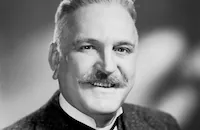
Frank Morgan

Mary Astor
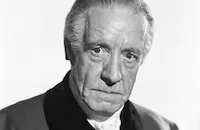
Lewis Stone

Barry Sullivan

Marjorie Rambeau

Edgar Buchanan
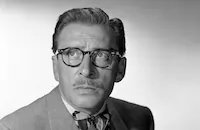
Leon Ames
Mickey Knox
Richard Rober

William Conrad

Darryl Hickman
Caleb Peterson

Dorothy Comingore
Art Baker
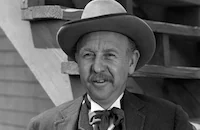
Charles Arnt

David Opatoshu
William Edmunds
John "skins" Miller
Arthur Space
Ralph Freedman
Orland Bush
Horace Deal
William E. Connors
Samuel A. Landy

Griff Barnett
Lillian West
Lucille Curtis
Marjorie Jackson
Peggy Leon

Roger Moore
Fred Hoose
Jack Gargan
Mickey Mccardle
William Norton Bailey
Frank Pershing
Ralph Montgomery
Cliff Clark
William "bill" Phillips
Basil Brigadier
George Pembroke
George Riley
Harry Cody
Cameron Grant

Douglas Fowley
William Haade
Eloise Hardt
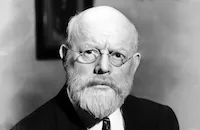
Howard Mitchell
Robert Williams
Isobel Randolph
Harry Antrim
George Carleton
Tom Quinn
Jimmy Kelly
Jack Daley
Anthony Merrill
Eddie Phillips
Pat Goldin
Daniel Da Jonghe
Tommy Bond
Mary Jane Smith
Benny Bartlett
Ralph Hodges
Frank Mills
Jack Raymond
Joe Whitehead
Jean Andren
Louise Lorimer
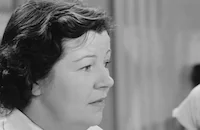
Margaret Bert
Almeda Fowler
Jerome Sheldon
Mahlon Hamilton
Helen Lynd
William Tannen
Donald Kerr
Billy Snyder
Sayre Deering
Barbara Billingsley
Marci Booth
Gloria Moore
Arnolda Brown
Philo Mccullough
Joan Valerie
Gil Patric
Henry Sylvester
Tay Dunn
Ottola Nesmith
Ed Cassidy
Crew
Richard Brooks
Jack Dawn
Arthur Freed
Cedric Gibbons
Henry W. Grace
Sydney Guilaroff
Lennie Hayton
Mervyn Leroy
Urie Mccleary
Harold Rosson
Douglas Shearer
Sid Sidman
Edwin B. Willis
Ralph E. Winters

Videos
Movie Clip





Trailer
Film Details
Technical Specs

Articles
Any Number Can Play
Though Clark Gable gives a commanding performance in Any Number Can Play, and is backed up by a strong supporting cast, the movie was not a great success. Even Mervyn LeRoy wondered why. The director later wrote, "Any Number Can Play is one picture that didn't turn out as well as I had hoped. I don't know what went wrong. You start out with what you think is a good script and you get a good cast and you end up with a film that is less than you expect. Something happened or, more likely, something didn't happen - the chemistry didn't work and the emotions didn't explode. Whatever the reason, Any Number Can Play was a disappointment to me."
LeRoy had one of the most diverse resumes of any A-list director in Hollywood, having racked up an impressive array of fine war, women's, gangster, musical and social consciousness films over the years. By the time of Any Number Can Play, LeRoy's credits included Little Caesar (1931), I Am a Fugitive From a Chain Gang (1932), Gold Diggers of 1933 (1933), Waterloo Bridge (1940), Thirty Seconds Over Tokyo (1944), and Little Women (1949).
Screenwriter Brooks made an impression on LeRoy, who later recalled, "While I was shooting, a young man with directorial ambitions asked me if he could stay with me on the set while I worked. I remembered how I had learned by observing, so I agreed. His name was Richard Brooks, and he was on the set every day. Brooks became a fine director and I hope that watching me at work was of some help to him." Brooks, who had also written screenplays for John Huston, John Sturges, Robert Siodmak and Anthony Mann, directed his first feature, Crisis (1950), immediately after Any Number Can Play. He went on to helm Blackboard Jungle (1955), Elmer Gantry (1960) and The Professionals (1966).
Any Number Can Play features an excellent supporting cast, with Audrey Totter, Frank Morgan, Lewis Stone, Edgar Buchanan, William Conrad, and Mary Astor, who was following up her role as Marm in Little Women (1949). This would be Astor's last film for several years. She was suffering through alcoholism on both Little Women and Any Number Can Play, and after working on this film she did not renew her MGM contract. Instead, she entered a sanitarium for several months. She resumed her career in 1952 when she returned to the stage; her next film role did not come until A Kiss Before Dying in 1956.
Co-star Alexis Smith was a beautiful Warner Bros. contract star who was loaned out to MGM to play the wife who wants Gable to give up his casino. She was convincing as Darryl Hickman's mother despite the fact that he was 18 and she was just 28. This was the first time Smith had worked away from Warner Brothers. Years later she remembered how different it felt: "Warner Bros. used to be a very congenial lot. There was a very democratic atmosphere, as opposed to Metro, where the star system was so evident. At the time, it seemed so much more exciting to be working at Metro. That's where all the glamorous stars were. But now, thinking back, Warners was a very progressive studio and did courageous things. Metro was merely a glamour factory."
Gable married his fourth wife, Lady Sylvia Ashley, about five months after Any Number Can Play was released. The widow of Douglas Fairbanks, Ashley bore a strong physical resemblance to Gable's third wife and great love, Carole Lombard, who had died in a 1942 plane crash. This marriage lasted 2 ½ years. One more marriage would follow for Gable, to Kay Williams Spreckels, in 1955.
Producer: Arthur Freed
Director: Mervyn LeRoy
Screenplay: Richard Brooks, Edward Harris Heth (novel)
Cinematography: Harold Rosson
Film Editing: Ralph E. Winters
Art Direction: Cedric Gibbons, Urie McCleary
Music: Lennie Hayton
Cast: Clark Gable (Charley Enley Kyng), Alexis Smith (Lon Kyng), Wendell Corey (Robbin Elcott), Audrey Totter (Alice Elcott), Frank Morgan (Jim Kurstyn), Mary Astor (Ada).
BW-103m.
by Jeremy Arnold

Any Number Can Play
Quotes
Trivia
The rights to the property cost $50,000.
Notes
According to a September 1948 Hollywood Reporter news item, M-G-M purchased the screen rights to Edward Harris Heth's novel from Twentieth Century-Fox for $50,000. The news item notes that Twentieth Century-Fox had purchased the rights to the story three years earlier but shelved a completed script due to casting difficulties. Alexis Smith was loaned by Warner Bros. for the film.

Miscellaneous Notes
Released in United States Summer July 1949
Released in United States Summer July 1949














